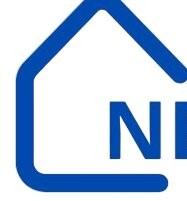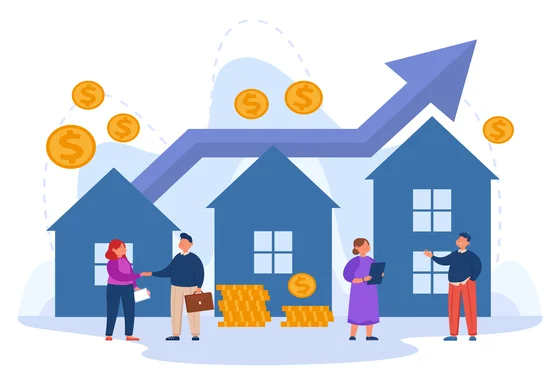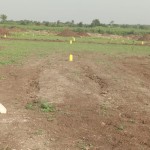
Real Estate Market Trends for 2023 and Beyond: What to Expect

The real estate market is a dynamic landscape that continually evolves in response to economic, social, and technological shifts. As we approach 2023 and beyond, it's essential for buyers, sellers, and investors to stay informed about emerging trends. In this blog, we'll delve into some of the most anticipated real estate market trends for 2023 and 2024.
1. Tech-Driven Homebuying:
Technology is revolutionizing the homebuying process. Virtual tours, augmented reality, and blockchain transactions are becoming more common, allowing buyers to explore properties from anywhere in the world.
2. Sustainability and Energy Efficiency:
Eco-friendly homes are in high demand. Features such as solar panels, energy-efficient appliances, and green building materials are increasingly attractive to environmentally-conscious buyers.
3. Work-from-Home Flexibility:
The rise of remote work has shifted priorities for homebuyers. Proximity to the workplace is less critical, leading to increased interest in suburban and rural areas, where larger homes and green spaces are more accessible.
4. Multigenerational Living:
Multigenerational living arrangements, where multiple generations of a family share a home, are on the rise. This trend has led to a demand for homes with separate living spaces or guest suites.
5. Urban Revival:
While suburban and rural areas are gaining popularity, some urban areas are experiencing a revival as people seek vibrant city living. The appeal lies in cultural amenities, dining, and entertainment options.
6. Continued Low Mortgage Rates:
Mortgage rates are expected to remain relatively low, making homeownership more accessible. This is good news for buyers, although increasing home prices may offset some savings.
7. Renting vs. Buying Debate:
The decision between renting and buying will continue to be a topic of debate. Renting offers flexibility, while buying builds equity. The choice will depend on individual circumstances.
8. Affordable Housing Initiatives:
The affordability crisis remains a concern in many markets. Governments and organizations are actively working to address this issue through affordable housing initiatives.
9. Aging Population Housing:
As the population ages, there is a growing demand for age-friendly housing options, such as retirement communities and homes with universal design features.
10. Shift in Investment Strategies:
Real estate investors are diversifying their portfolios. Alternative investments like real estate crowdfunding and short-term rentals are gaining traction.
11. Sustainable Development:
Sustainable and green building practices will continue to gain momentum, with developers focusing on eco-friendly construction and energy-efficient designs.
12. Market Resilience:
Real estate markets have shown resilience during economic challenges. While market fluctuations may occur, real estate often remains a stable long-term investment.
13. Data-Driven Decision-Making:
Access to data and analytics will play a more significant role in real estate decisions. Buyers and investors will rely on data for market insights and investment opportunities.
14. Regulations and Policy Changes:
Real estate regulations and policies can impact the market significantly. Staying informed about local and national policy changes is crucial for all stakeholders.
In conclusion, the real estate market is poised for exciting developments in 2023 and beyond. Technology, sustainability, changing work dynamics, and evolving buyer preferences will shape the industry. Whether you're a homebuyer, seller, or investor, understanding these trends will be vital for making informed decisions in the dynamic real estate market.









